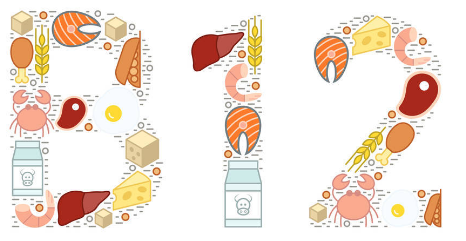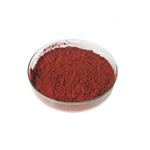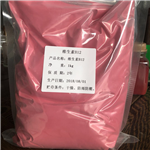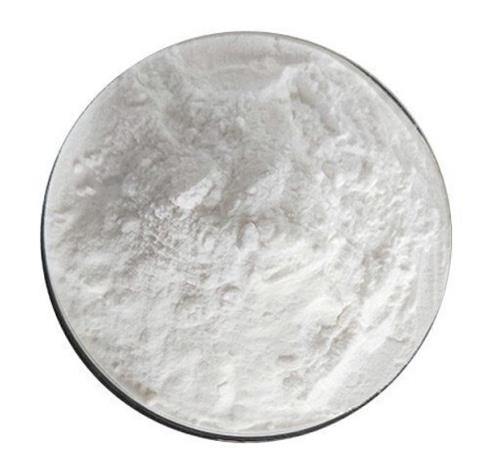The importance of vitamin B12 in maintaining health
Mar 8,2022
Background
Vitamin B12, also known as cobalamin, is the only vitamin that contains metal elements. Vitamin B12 in nature is synthesized by microorganisms, and higher animals and plants cannot manufacture vitamin B12. Vitamin B12 is the only vitamin that requires the help of an intestinal secretion (endogenous factor) to be absorbed. Some people lack this endogenous factor due to gastrointestinal abnormalities, and they will suffer from pernicious anemia even if the dietary source is sufficient.
There is essentially no vitamin B12 in plant foods. It stays in the gut for a long time, taking about three hours (most water-soluble vitamins only take a few seconds) to be absorbed. The main physiological function of vitamin B12 is to participate in the production of bone marrow red blood cells to prevent pernicious anemia; to prevent damage to the brain nerves. Vitamin B12 is one of the latest B vitamins discovered so far. Vitamin B12 is a polycyclic compound containing trivalent cobalt. Four reduced pyrrole rings are linked together to form a corrin macrocycle (similar to porphyrin), which is the core of the vitamin B12 molecule.
Therefore, compounds containing this ring are called corrinoids. Vitamin B12 is a light red needle-like crystal, easily soluble in water and ethanol, the most stable under the condition of pH 4.5-5.0 weak acid, decomposed in strong acid (pH<2) or alkaline solution, and can be destroyed to a certain extent when heated. However, the short-term high-temperature disinfection loss is small, and it is easily destroyed by strong light or ultraviolet rays. Ordinary cooking process loss of about 30%.
The pathological effect of vitamin B12
In vitamin B12 and folic acid deficiency, thymine nucleotides decrease, DNA synthesis slows down, and intracellular uracil deoxynucleotide (dUMP) and deoxyuridine triphosphate (dUTP) increase. Thymidine triphosphate (dTTP) is reduced, uracil is incorporated into DNA, DNA is fragmented, DNA replication is slowed down, and mitotic time is prolonged (S phase and G1 phase are prolonged), so the nucleus is larger than normal, and the nucleus is larger than normal. The chromatin was loose and dotted, lacking the phenomenon of concentration, and there was no obvious obstacle to the synthesis of RNA and protein in the cytoplasm.
With the delay of nuclear division and the increase in the amount of synthesis, the formation of giant blood cells with large cell bodies, asynchronous nuclear and cytoplasmic development, and loose nuclear chromatin, the so-called "old plasma young nucleus". The giant changes are most prominent and characteristic in the erythrocyte series, which is called the megaloblastic series. Giant changes in cell morphology are also seen in granulocytes, megakaryocyte series, and even some proliferative somatic cells. The megaloblastic cells are easily destroyed in the bone marrow, resulting in ineffective erythropoiesis. This eventually leads to an insufficient number of red blood cells and symptoms of anemia.
The dangers of vitamin B12 deficiency
Patients with vitamin deficiency have megaloblastic anemia, severe cases have fever, mild yellowing of the skin and sclera, hepatosplenomegaly, anemia heart disease and heart failure. Neurological symptoms appear late, with or without anemia, neurological disorders, spinal cord degeneration, demyelination, and severe psychiatric symptoms, patients have symmetrical numbness and paresthesias in the fingers and feet, sweating dysfunction, and Joint ulcers, nail dystrophy, limb weakness, difficulty moving, ataxia, forgetfulness, irritability, depression, apathy, and even dementia. Young patients have mental depression, mental decline, tremors of the head, limbs and trunk, and can also die due to coma.
Gastrointestinal symptoms include vomiting, diarrhea and glossitis. The tongue surface is pale at first, then becomes red and smooth, the papilla is atrophied, there are inflammatory vesicles or shallow ulcers on the tongue surface, and pain is felt. The skin has extensive symmetrical brown pigmentation on the palms, backs of the hands, wrists, forearms, and lower extremities, and may also have hemorrhagic spots or enteropathic acrodermatitis-like changes.
The sources of vitamin B12
Vitamin B12 exists in animal foods(picture 1), and its rich sources are animal offal (liver, kidney, heart), bivalve (clams and oysters), skim milk powder, seafood (crab, stone fish, salmon, sardines) ) and egg yolks, others are meat, lobster, cod, flounder, tuna, fermented cheese, fresh dairy, cream and cheese. Human gut bacteria also provide a limited amount.

Picture 1 The sources of vitamin B12
The protein-bound vitamin B12 in food is released only under the action of gastric juice, and is combined with a glycoprotein (ie, "intrinsic factor") secreted by the gastric pyloric mucosa. Trypsin and bicarbonate facilitate the absorption of vitamin B12. In the ileum, vitamin B12 is separated from "intrinsic factor" and absorbed by the mucosa, linked with specific alpha globulin (transcobalamin I and II) in the blood and transported to the liver, bone marrow cells, reticulocytes and other tissues spare.
Renference
1 Zhou Jin, Meng Ran, Li Guozhong, et al. Study on subacute combined degeneration, vitamin B12 deficiency and megaloblastic anemia [J]. Chinese Journal of Internal Medicine, 2004, 43(002):90-93.
- Related articles
- Related Qustion
- The Benefits of Vitamin B12 Nov 18, 2022
The passage introduces the benefits of Vitamin B12.
Lysozyme, a muraminidase recovered from egg white albumin, milk, and other tissues, is best known for its ability to inhibit fermentative butyric acid bacteria responsible for late blowing during ripening of semihard cheeses.....
Mar 7,2022Biochemical EngineeringAcrylic acid is an important organic synthesis raw material and a synthetic resin monomer, and is a vinyl monomer with a very fast polymerization rate.....
Mar 8,2022APIVitamin B12
68-19-9You may like
- Vitamin B12
-

- $20.00 / 1kg
- 2024-04-18
- CAS:68-19-9
- Min. Order: 1kg
- Purity: 99%HPLC
- Supply Ability: 600tons
- vitamin b12(pharm grade)
-

- $3780.00 / 1KG
- 2024-04-16
- CAS:68-19-9
- Min. Order: 1KG
- Purity: 99%
- Supply Ability: 10000 kilograms/month
- Vitamin B12 (Cyanocobalamin)
-

- $3500.00 / 1KG
- 2024-04-16
- CAS:68-19-9
- Min. Order: 1000KG
- Purity: 99
- Supply Ability: 1000





